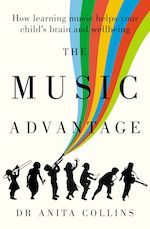With everything at our fingertips in an instant, children are not learning the great art of waiting. There’s a surprising solution for that.
From the start of this century we have seen a rapid expansion of technology that has made our lives easier, arguably more connected and definitely more immediate. Children are using technology to access all the knowledge of the world, both fake and fact, and education theory and practice is scrambling to figure out what on earth twenty-first century skills might be.
Another by-product of these advances is that children can now watch TV, play games and access information whenever they want. No more waiting for your favourite show to come on every Thursday at 7 pm, just switch on your favourite streaming service. No more waiting for friends to come over after school to play your favourite game, just jump online and make your next move digitally—who needs to be in the same house, suburb or even country?
These technological developments are amazing. But with everything at our fingertips, how do our children learn the great art of waiting? This is where the study of music learning, among many other activities, comes into play.
How music impacts your child’s brain
Research into music learning and brain development started with adults, mostly professional musicians. This was because adult musicians were found to have brains that were wired very differently and highly effectively, and researchers wanted to learn more about what might have caused this. Again, it is a classic chicken-and-egg conundrum: did smart people take up and excel at music learning or did music learning change how their brains developed?
One of the very first areas that researchers found to be highly developed in adult musicians was their inhibitory control. Anyone who has attempted to learn a musical instrument, including voice, will know how much discipline goes in to that learning. You have to get it wrong again and again and again before you get it right. Even then, you might get it right in your Tuesday afternoon practice but not be able to play it in your Wednesday morning rehearsal. It is infuriating and, as it turns out, wonderfully instructive for our brains.
One way the higher level of inhibitory control kicks in during the process of learning music is during the more frustrating and stressful parts of practice, when you just can’t seem to get it. Strong inhibitory control can stop us from giving up on the note we are trying to reach or the run of notes we are trying to put together, and we might call this persistence or sticking at it. Whatever term you use, the inhibitory control is stopping a musician from giving up, walking away or throwing in the towel. The little doses of frustration and stress that adult musicians have learned through many years of exposure help them to recognise, manage and conquer future frustration. It is like exposure therapy for frustration.
But is inhibitory control inherited or learned? As I find myself saying so often in any area of development, it is most likely both. Research into genetics and individual personalities has shown that both factors play a significant role in the level of inhibitory control an individual possesses, and these levels could be the deciding factor when it comes to musically trained children who appear to find the activity easy or have what we might identify as talent. Another group of researchers have sought to test when and how inhibitory control might be affected by experience, specifically the experience of learning music, which appears to have some unique qualities.
How music teaches your child to wait
Once identifying that inhibitory control was high in adult musicians, researchers started working backwards, or developmentally. When did children begin to show behavioural choices that indicated inhibitory control, and if they learned music did that activity have any impact on those inhibitory skills?
In the original marshmallow experiment with the children between four and five years of age, one third of the experiment group successfully delayed gratification, so this developmental stage could be the start of inhibitory control development. Three research teams designed studies with randomised groups of children who commenced their music learning between six and seven years, eight and 10 years, and nine and 12 years. These studies looked at slightly different areas of inhibitory control, often in conjunction with other executive function skills such as attention, intelligence or planning. All three studies found marked improvement in inhibitory control which, when the results were controlled for many other factors, could be attributed to the music learning experience.
Indeed, the 2011 study led by Dr Franziska Degé in Germany proposed the concept that the improved inhibitory control in musically trained children was the mediating factor between musically trained children and higher levels of intelligence. Put another way, the ability to delay gratification and wait your turn was the skill children needed to then go on to develop their overall intelligence. A study published as recently as 2018 led by Dr Artur Jaschke in the Netherlands supported this connection after following 147 six-year-old children for more than two years of music learning. The researchers concluded that through their music learning, the children in the study improved their executive function abilities of inhibition and planning, and these improvements acted as the transfer mechanism across to their improved academic achievement.

This is an edited extract from The Music Advantage by Dr Anita Collins, Allen & Unwin, RRP: $32.99, available now.
How helpful was this article?
Click on a star to rate it!
0 / 5. 0
Be the first to rate this post!
Dr Anita Collins
Related posts
Subscribe
Receive personalised articles from experts and wellness inspiration weekly!

